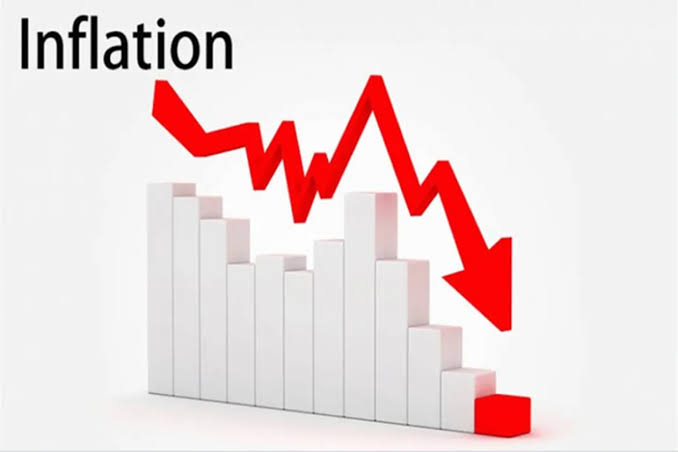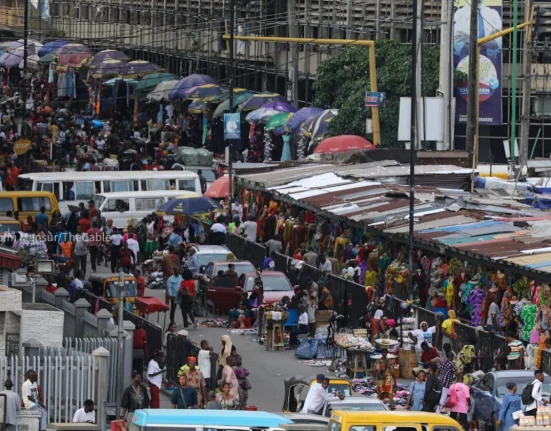Nigeria’s inflation rate slowed for the fifth consecutive month in August 2025, offering some relief to households struggling with high living costs.
The latest figures released on Monday by the National Bureau of Statistics (NBS) show that headline inflation dropped to 20.12 percent, down from 21.88 percent in July. This represents a 1.76 percentage point decline month-on-month and a sharp fall compared to the 32.15 percent recorded in August 2024.
According to the NBS, the Consumer Price Index (CPI) – which measures the average change in the prices of goods and services – inched up slightly to 126.8 points in August from 125.9 points in July. Month-on-month inflation stood at 0.74 percent, significantly lower than 1.99 percent in July, indicating a slower pace of price increases across the country.
The report shows that inflationary pressures remain uneven across regions. Urban inflation eased to 19.75 percent year-on-year, compared with 34.58 percent in August 2024, while rural inflation was slightly higher at 20.28 percent, down from 29.95 percent a year earlier.
On a monthly basis, urban inflation slowed to 0.49 percent in August from 1.86 percent in July, while rural inflation dropped to 1.38 percent, compared with 2.30 percent in the previous month. This underlines the sharper impact in rural areas, where poor road networks, high transport costs, and supply chain disruptions continue to drive price increases.
Food prices, which account for the largest share of inflation in Nigeria, also moderated in August but remain elevated. Food inflation slowed to 21.87 percent year-on-year, down from 37.52 percent in August 2024. On a monthly basis, food inflation declined to 1.65 percent in August, compared with 3.12 percent in July.
The NBS attributed this moderation to falling prices of staples such as rice, maize flour, millet, guinea corn flour, semolina, and soya milk. However, food remains expensive in many parts of the country, particularly in the northern states where insecurity and logistics bottlenecks continue to disrupt farming and distribution.
Core inflation which excludes volatile agricultural products and energy, was recorded at 20.33 percent year-on-year, down from 27.58 percent a year earlier. But on a monthly basis, it rose to 1.43 percent from 0.97 percent in July, driven by higher costs of housing, electricity, gas, transportation, education, and healthcare.
This suggests that while overall inflation is easing, structural pressures in essential services remain, a development the Central Bank of Nigeria (CBN) is expected to monitor closely.
Inflation trends varied across states. Ekiti (28.17%), Kano (27.27%), and Oyo (26.58%) recorded the highest year-on-year inflation rates, while Zamfara (11.82%), Anambra (14.16%), and Enugu (14.20%) posted the lowest.
Food inflation was most severe in Borno (36.67%), Kano (30.44%), and Akwa Ibom (29.85%), while Zamfara (3.30%), Yobe (3.60%), and Sokoto (6.34%) recorded the lowest.
For the average Nigerian, the slowdown in inflation means that while prices are still high, they are no longer rising as quickly as before. This could gradually ease pressure on household budgets, particularly for food and basic goods. If the trend continues, it may also encourage businesses to plan better and could improve purchasing power in the medium term.
However, analysts warn that core inflationary pressures in transport, power, and healthcare could limit the relief felt by ordinary Nigerians, especially as many families still spend a significant share of their income on these essentials.
The announcement comes ahead of the CBN Monetary Policy Committee (MPC) meeting scheduled for September 22–23, 2025. With inflation moderating for five straight months, the central bank may gain some flexibility in its monetary policy stance.
Currently, Nigeria’s benchmark interest rate stands at 27.5 percent. While some analysts believe the CBN may consider easing rates to stimulate economic activity, the persistence of high food and core inflation could make the committee cautious about making any drastic changes.
For the broader economy, sustained disinflation could help restore confidence in the naira, encourage investments, and create a more stable environment for businesses.


